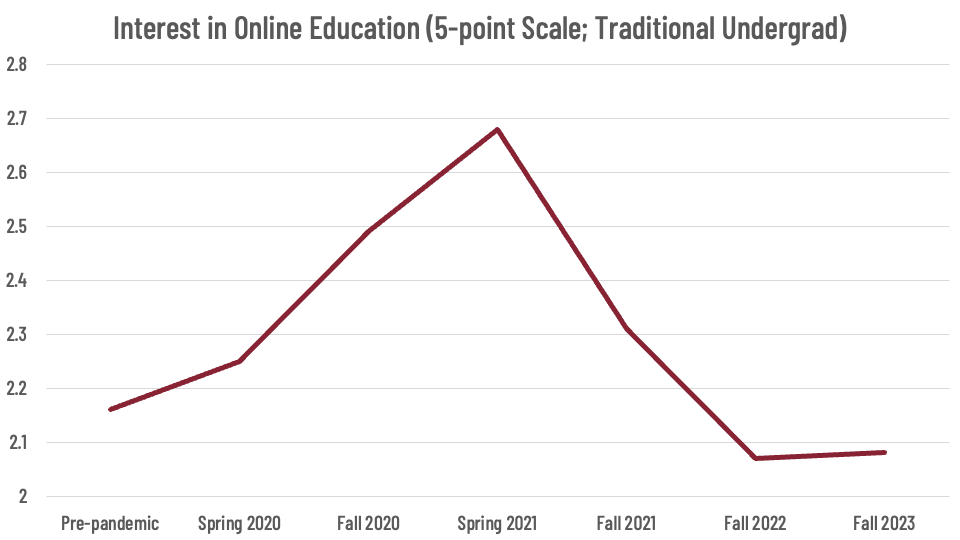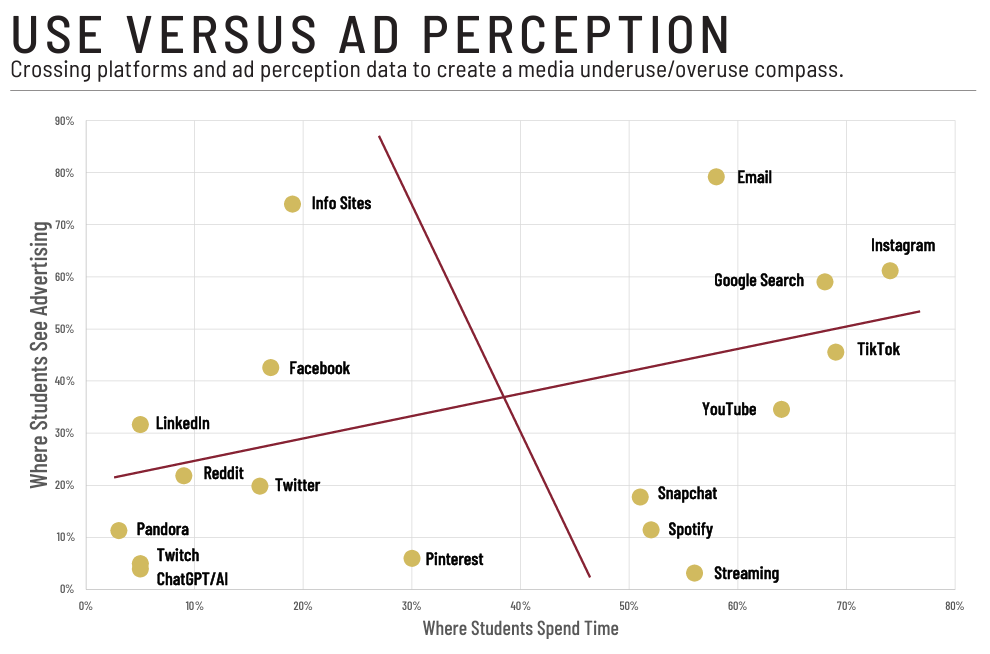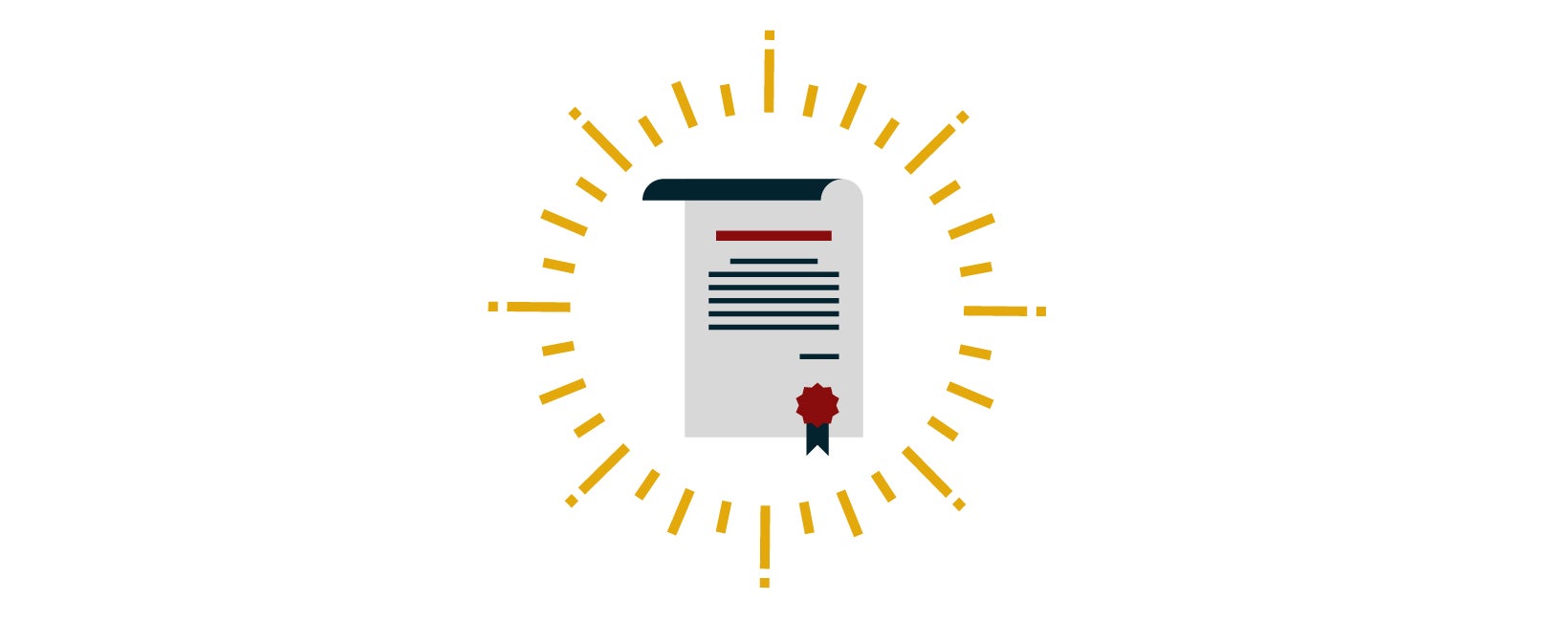 Sep 12, 2023
Persona
Sep 12, 2023
Persona
Prior to the COVID-19 pandemic, Carnegie would offer regular graduating senior surveys to its CollegeXpress audience. With the industry adjusted to a new normal, we began this effort anew and sought the opinions of students entering college in fall 2023. We received more than 14,000 responses. We’ve broken down some of the biggest takeaways here. But, if you want to go in-depth, check out our latest report, where we break down the data across 38 demographic dimensions and 11 types of institutions the students will attend.
College selections
Students were first asked to report how many colleges they applied to and to how many they were accepted. Importantly, college application levels were back to pre-pandemic amounts in this study at around seven per person. During the height of COVID-19 in 2020, this number ballooned to nearly 10. Acceptance rates for the CX audiences studied have held steady at around 75%. Among these students, 52% will attend their top-choice school, and 31% will attend a school near the top of their list. This leaves nearly 20% of students who may be attending an alternative option, which schools should be aware of as a retention risk. Carnegie recommends doing institutional Admitted Student Research with this important positioning question to identify students who may need extra attention in their first few semesters at school.
In order to create breakouts for institutional types the students will attend in the fall, respondents were asked to describe their institution across the dimensions of size and type. This created 11 distinct categories of schools to compare. In addition, distance from home was a variable carried over from other national research by Carnegie. Interestingly, while a majority of students (70%) are attending college within a two-and-a-half-hour drive from home, previous research showed more than 80% had a preference for this close distance. In other words, about 10% of students enrolled at a school farther from home than was their intention, another potential retention factor.
Choose the right college
Motivations for attending college mirror the outcomes of our 2022 report that were specific to an in-depth look at motivations after COVID-19. Passion continues to be an important psychological component of the college journey. This is enforced by degree and major options taking first place in college factors of choice. The individual nature of this process, as well as the barriers to education found in this study (on pages 26–30), perfectly illustrate the importance of individualized outreach and psychographics-driven approaches to communication.
New to this study was a look at factors of degree and major choice. Beyond the personal interest factor, a majority of students (59%) said one of their top three major selection factors was job opportunities, while 44% noted salary potential. Understanding degree demand as a factor of job availability and salary outcomes can help position strategies around which courses to highlight and how to better market new program options.
As a follow-up to a series of content on online course interest, perceptions have finally evened out after a major spike during the pandemic.

The college search journey
As college continues to permeate the minds of young people, it might be unsurprising to hear that 15% of students begin looking for college options before high school even begins, and more than half (54%) will have started before their junior year. Carnegie’s enrollment strategists noted in the report’s insights section about first-year high school students:
“Freshman communication plans—even if they are short and high-level—are important, and early nurture practices such as this will give colleges willing to invest in them a leg up in the eventual college decision process.”
As a response to many in the field having worries about AI, Carnegie added a question to this survey about the use of AI like ChaptGPT in the college search and application process. 2% of respondents admitted to using the tools in order to fill out application information.
Though information-seeking practices haven’t changed a lot, more personal connections are being used than before the pandemic. In addition, more respondents trust organic social media content from other users (high or complete trust at 49%) compared to content posted by schools themselves (high or complete trust at 32%). The impact of these personal touches—and the fact that a majority of respondents (51%) follow some type of social media influencer—suggests strategies around populating and encouraging positive user-generated content will be important for students to get to know a school’s personality and campus feel.
So, which social media platforms are important? Carnegie continues to track which platforms young people are using and also asked where students recalled seeing advertising for colleges in this study. The outcome is the graphic below, which shows where students are seeing advertising on platforms they spend time on in the top-right quadrant. The top left could be considered an area where institutions may be overspending on advertising as compared to student use (though college information sites get a logical free pass here). The bottom right shows an area of potential where students are spending time but not yet seeing as much college information. Bringing in natural, platform-specific, and appropriate content to these areas will help with this generation of prospects.

Using this data and more
Carnegie encourages college enrollment, retention, communication, and marketing specialists to review the entire report for insights specific to their institutional type or demographics of interest. The end of the report includes several high-level insights and recommendations from Carnegie’s team of experts.
If you’re looking for more information about this study, the students in the CollegeXpress system, or how to leverage our research offerings into a prospective student survey for your institution, please be sure to contact us.
